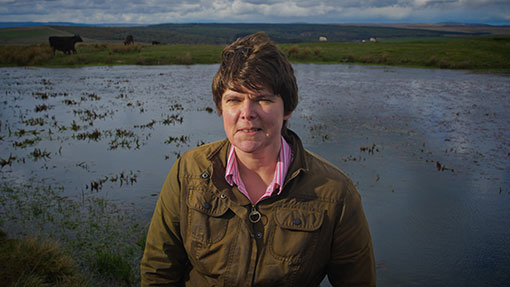OPINION: NFU should think again on hill farming subsidies

It has often seemed to me that it must be very difficult operating an organisation like the NFU.
First, they are trying to represent diverse and diverging interests. These range from the smallholder with a full-time job and a few acres, to the tycoon with a full-time job and a lot of acres, and all those in between, who have farming as their sole occupation.
The membership includes landowners and tenants, conventional and organic, livestock and arable, the haves and the have-nots, the great, the good and the distinctly ordinary.
Second, the members are each the boss of their own business. They are decision-makers who expect their views to count. Most have never had to make the compromises that make office life bearable, in terms of rubbing along with co-workers. Many do not deal directly with the public or have a need to converse with their customers.
Views may be strongly held and robustly expressed. In short, in many cases, there is a tendency to know the lot.
Furthermore, each member may have priorities that are not obvious to anyone else. A former branch NFU chairman once told me he was rung up by a member who said, “The new headmaster at the village school is a vegetarian. What are you going to do about it?” To which the answer was presumably: “Send him some carrots. What do you expect me to do about it?”
In these circumstances, it is virtually impossible to please all members all of the time.
Generally speaking, they seem to have done a reasonable job on the big issues. For example, the NFU was successful in negotiating down the proposed CAP modulation figure from 15% to 12% which will be widely welcomed.
However, coming from the hill sector, I find the fact that our own union has been objecting to government proposals to adjust the SFP rates both disappointing and wrong. The proposals are to push a higher proportion of the total SFP ‘uphill’.
While I’m sure nobody wants to see a reduction in their subsidy, the fact is that the hill farmers need it more. It is becoming an existential issue for anyone farming less than several thousand acres in the hills, because the opportunities for profitable farming enterprises are so limited.
Prince Charles’ editorial in Country Life last year referred to “a typical hill farmer earning just £12,600, with some surviving on just £8,000”. These figures appear to be based on a 2012 study in Teesdale and are consistent with previous studies in the Peak District. They include subsidies.
Not very much, is it? This was the situation before the disastrous winter of 2012/13 and before taking account of the future impact of the ending of the Uplands Entry Level Stewardship scheme and uncertainty over what it will be replaced by and what land will qualify for it.
The NFU is apparently objecting to the proposed increase in moorland rates, in case people with grouse moors benefit. I agree – so why not put in a minimum stocking requirement and disallow areas running grouse shooting – which aren’t exactly a secret.
Why object to the whole increase for moorland? Even under the new proposals, the lowland farmer will still receive a substantially higher payment than a hill farmer with moorland on the same size place.
The NFU’s current position is that the allocations do not have to be finalised until the other aspects of CAP reform are resolved. I hope they think again, otherwise hill farmers will have to conclude that NFU stands for Not For the Uplands.
Elizabeth Elder and her husband Jake run sheep and cattle on 235ha of hill ground on the Otterburn Firing Range in Northumberland.
What do you think about this subject? Have your say on our website forums
